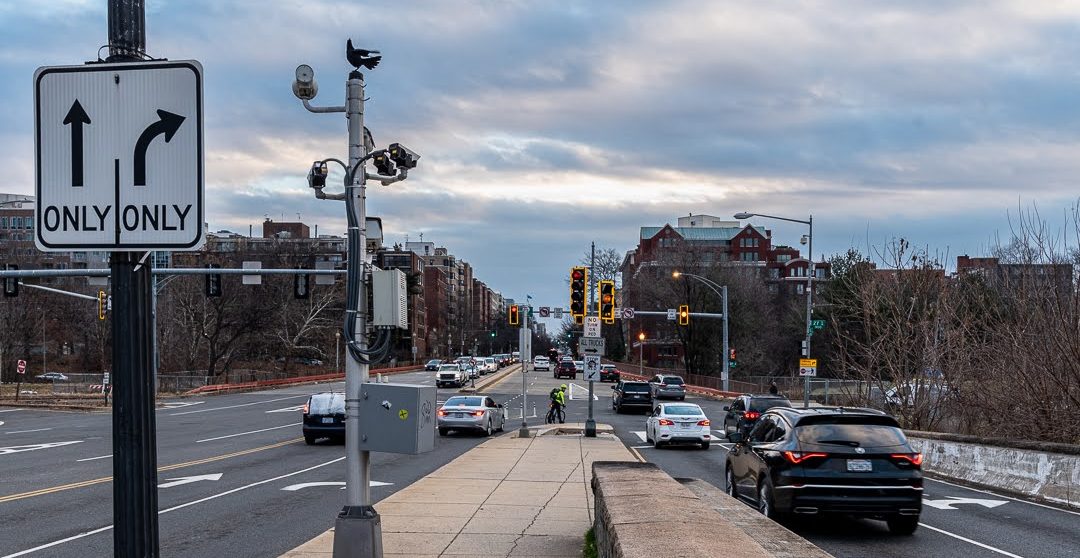During today's White House jobs summit, President Obama stopped into an infrastructure session where 21 representatives from business, labor, state and local governments, social equity groups, and think tanks were sharing ideas on how to maximize the benefit of transportation spending.
 President Obama held a "jobs summit" today. (Photo: whitehouse via Flickr)
President Obama held a "jobs summit" today. (Photo: whitehouse via Flickr)"Everybody in this administration acknowledges the need for infrastructure investment," Obama said, adding that "there is nothing I'd rather do in terms of long-term economic growth."
He went on to address "tensions" inherent in the process of allocating transportation aid to maximize quick job creation while also focusing on projects that can improve long-term U.S. quality of life. Before asking attendees to think about "what we can do to make 'shovel-ready' more shovel-ready," Obama explained to a live online audience:
The tension we've been seeing is that what’sgood in the long term may not necessarily work as an immediate, short-term stimulus. We're still gettingsmacked around from the Recovery Act on this … infrastructure generally has a longer tail. The term "shovel-ready," let’s be honest here, doesn’t always live up to its billing.
There is also a tensionembodied in infrastructure … between immediate maintenance [such as] repaving a highway, which is generally more shovel-ready but may imply duplicating the needs of the past as opposed to projects that are visionary andwill deliver real bang for the buck in the long term but may require extensive planning.
The concerns Obama raised today are playing out once again as Congress weighs a new round of economic recovery funding that's likely to involve more infrastructure spending than the first stimulus law, about 6 percent of which went to transportation. Transit and road interests have released lists of "ready-to-go" projects, but few details are available so far on the nature of the work to be done -- and the transit list doesn't include the job-rich prospect of operating aid.
Today's transportation session generated an array of pitches, with many attendees backing the proposed National Infrastructure Bank that Obama himself re-endorsed during his visit. Reed Hundt, co-chairman of the Coalition for the Green Bank, suggested that lawmakers not wait for a climate bill to clear the Senate but instead create the "clean energy deployment administration" envisioned in that measure as part of jobs legislation.
Frank Cownie, mayor of Des Moines, spoke for fellow urban leaders by urging the administration to send direct transportation funding to cities. Cownie said his metropolitan planning organization (MPO) received more than 100 submissions for a maximum of 16 potential transport projects that could be funded.
In an era of dwindling state budgets, Cownie told Obama, "only by a partnership with the federal government are we going to be able to make it happen."
Paula Hammond, Washington state's transportation secretary, made the case for expanding the stimulus law's competitive TIGER program -- which received $57 billion in bids for $1.5 billion in grants -- as a way to break down hidebound method of distributing money between transit, roads, and other modes.
But the final call rests with Obama. And today he appeared acutely aware of the pressure to combat the current unemployment, with long-term remaking of the nation's transportation system remaining a priority, but coming further down the line.
"Without the American people seeing
this translating into job growth right now, it's tough to get them interested in things happening two years
down the road," Obama said.
Friday Update: House transportation committee chairman Jim Oberstar (D-MN) today called Obama's comments on infrastructure "uninformed" during an interview with the Journal of Commerce.
"It was absolutely stunning to me," Oberstar said of Obama's candor on the trade-off between small-scale yet "shovel-ready" projects and long-term transportation investments.
Oberstar pointed a finger, as he often has in the past, at White House economic adviser Larry Summers, charging the former Clinton administration counselor with turning the president against infrastructure's economic benefits.
“This is the Larry Summers Effect at the White House,” Oberstar told the Journal. “This person does not understand, nor believe in, nor read
figures of success in the infrastructure program.”





